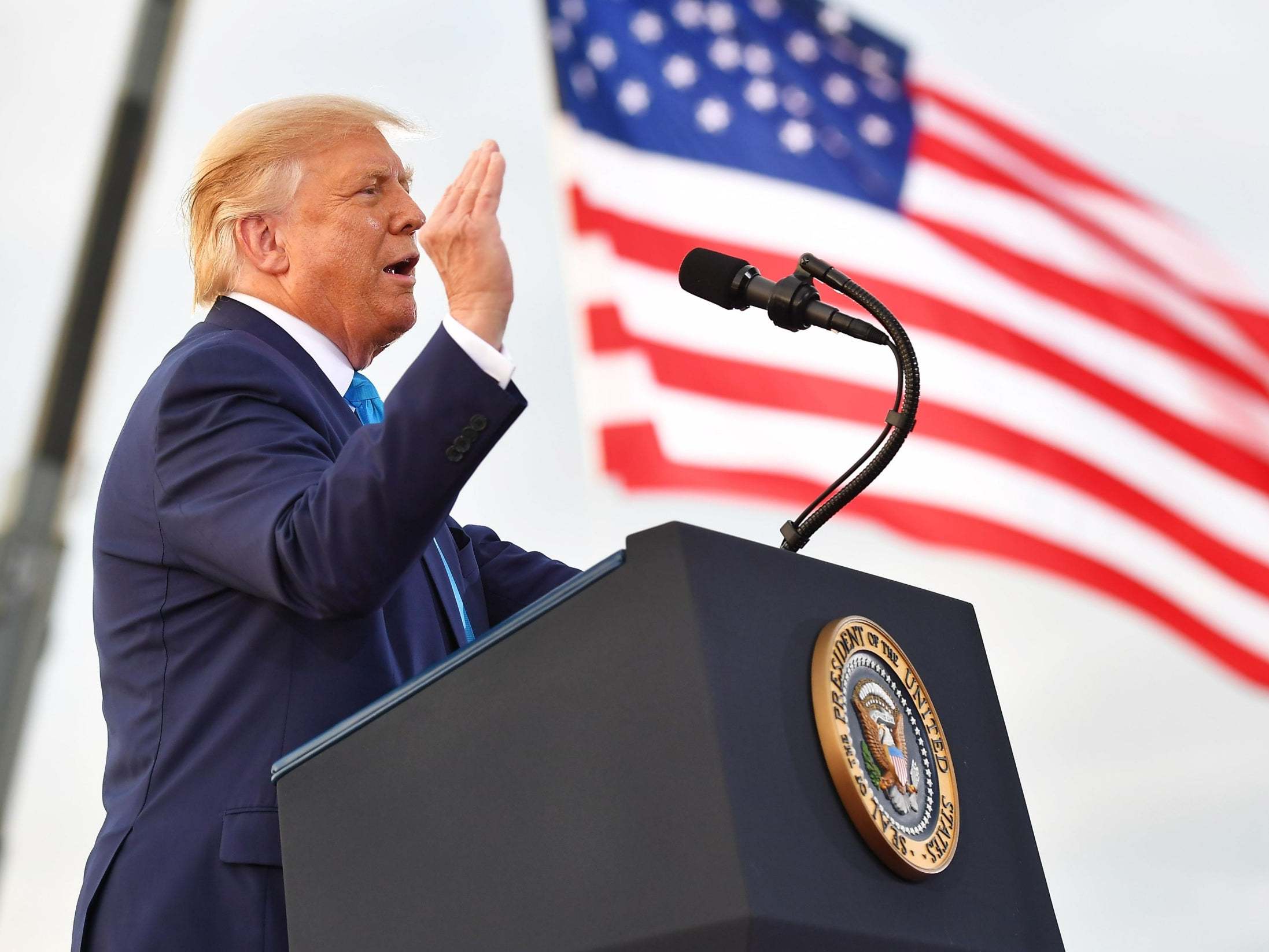The final report on America's economy under Trump just came out. It's damning
There has been no growth in the industries Trump set out to help — and it just gets worse from there

President Donald Trump’s team likes to hold out the prospect of his flailing campaign being rescued by a report the Friday before the November 3rd election. That report should show a booming economy snapping back from the short, sharp depression caused by China...no, Barack Obama...no, ANTIFA!
But the Friday before the election will be too late. This Friday’s jobs report is the last economic news before early voting begins: The swing state of North Carolina begins mailing ballots today. With employers adding 1.4 million jobs in August and the unemployment rate at 8.4 percent, the verdict is in.
It is this: Trump has seen unemployment virtually quadruple on his watch, before coming down to where it is only 72 percent higher than the 4.7 percent rate he inherited from Obama in 2017. The country has 4.7 million fewer jobs than when Trump took office, after adding 10.4 million in Obama’s second term. And the stock market gains he so loves to crow about? After Thursday’s 3.5 percent decline in the Standard & Poor’s 500, the index is up just 53 percent, versus 85 percent during Obama’s first term (123 percent if you measure it from the bottom in March 2009, blaming the first six weeks on the 2008 crash).
In other words, this is not difficult.
Trump’s argument for re-election is to bet on him because of the success of those in the economy who most scorned him — technology industries, and workers with college or graduate school degrees. You can see this in the stock returns, and you can see it in today’s jobs report.
The jobs report shows no growth in the industries Trump set out to help — led by mining (both coal and oil and gas), and manufacturing.
Indeed, let’s look at these in the jobs report — which said about a quarter of the new jobs were in the still-devastated restaurant sector or temporary hires of Census takers.
Mining shed 1,700 jobs, for a loss of 33,200 since January 2017. This includes both coal-mining — and coal usage has plunged under Trump’s term, despite his determined effort to undo environmental regulation — and oil and gas. Oil and gas have been hit because oil prices are down under Trump, making it not worthwhile to drill more (his non-stop appeasement of Saudi Arabia and Russia, which orchestrated the price decline specifically to hurt US producers, doesn’t help). Coal has been hammered by the fact that electricity powered by either gas or wind is now cheaper than coal.
“Tougher” trade policies were supposed to bolster US manufacturing and close the trade deficit, but that hasn’t happened. Indeed, data on Thursday showed the biggest trade deficit in manufactured goods ever. Similarly, the otherwise bullish monthly purchasing managers’ report this week showed manufacturing conditions improving — except for employment plans. In fact, the Institute for Supply Management report has pointed to manufacturing job contraction for 13 months now, beginning before coronavirus hit.
Since January 2017, manufacturing employment is down 237,000, after July’s 29,000 gain from workers recalled after coronavirus layoffs. That’s compared to a gain of almost 400,000 in President Obama’s last term.
This is what happens when your policies don’t bear any relationship to reality. Energy markets weren’t going to start buying coal again when cleaner alternatives were cheaper, or drive more to bolster gasoline demand because Trump told them to. Manufacturers’ global supply chains were never going to be uprooted to suit an American president, especially one whose exposure to losing re-election has been clear.
Here’s the right way to look at the stock market under Trump: What happens if you exclude technology companies? He didn’t invent the iPhone, or cloud computing. He has fought nonstop with Amazon CEO Jeff Bezos, and this week his Attorney General ordered Justice Department lawyers to file an antitrust lawsuit against Google owner Alphabet, prompting a mutiny among the lawyers. Trump deserves credit for the FAANG stocks (Facebook, Apple, Amazon, Netflix and Google) about as much as he deserves, well, respect.
The S&P 500, excluding tech, has risen only 30 percent since January 2017, according to S&P Dow Jones Indices analyst Howard Silverblatt. That’s versus 57 percent for Obama’s second term. Even that is too kind to Trump, since S&P doesn’t classify Amazon and Netflix as tech companies. Amazon stock has quadrupled, and Netflix is close to a four-bagger.
Trump’s record was mediocre to poor before coronavirus hit — job growth was more than 15 percent slower than in Obama’s second term, and growth in gross domestic product was about the same. His tax cut didn’t lead to the promised investment surge, and it took a doubling of the federal deficit and extraordinarily loose monetary policy to deliver growth even that good.
But presidential terms are four years — and Trump’s economic stewardship includes his epic mismanagement of the coronavirus pandemic.
So the four-year grade is a failure. Even Herbert Hoover’s great-granddaughter, a PBS talk-show host hired as a designated conservative, said this week she couldn’t take another term of Trump.
When a Republican loses the Hoovers, it’s a bad sign. And when Trump’s whole economic argument is that a stock market driven by the companies whose leaders disdain him most is higher, conclusions are not hard to reach.
Join our commenting forum
Join thought-provoking conversations, follow other Independent readers and see their replies
Comments
Bookmark popover
Removed from bookmarks